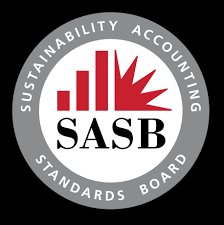A sustainable future
When the European Commission announced its Action Plan on Sustainable Finance, it showed its ambition to promote a sustainable future in the European Union and beyond. In fact, environmental, social, and governance factors on the financial performance of companies had gained importance for a while, but this declaration has further accelerated the development. However, just as with any financial data, ESG data depends on standardized reporting since capital markets demand evidence-based, market-informed, and transparent data in order to deliver long-term value to shareholders. Reporting on such data though is more complex than traditional financial reporting.
A common reporting taxonomy
One of the Commission’s key measures therefore was to establish an EU taxonomy for sustainable activities to help stakeholders to assess certain aspects but obviously the need for standardization does not end there.
Elsewhere, in addition to the work done by the United Nations, IOSCO and the OECD and others, five framework- and standard-setting organizations in particular have long been working on developing a comprehensive solution for corporate reporting that is urgently needed, namely the CDP, the Climate Disclosure Standards Board (CDSB), the Global Reporting Initiative (GRI), the International Integrated Reporting Council (IIRC) and the Sustainability Accounting Standards Board (SASB).
Only recently these five institutions announced a shared vision of what is needed for progress towards comprehensive corporate reporting and there intent to work together towards this aim. With increasing significance of ESG factors especially in light of current events, their work is becoming more and more important.
A major step towards simplifying the corporate reporting system
Therefore, when the news broke that the IIRC and SASB were to merge into a unified organization, the Value Reporting Foundation, it was a major step towards simplifying the corporate reporting system and provided further momentum.
The two organizations announced that the IIRC’s Integrated reporting Framework and the SASB Standards would complement each other since „integrated reporting describes all relevant value creation topics and the approach to integrating them in corporate thought and reporting. SASB provides the precise definitions of the data that should be reported for these topics in each industry.” Since both are already used around the globe, it would link the concepts under the common Value Reporting Foundation even further.
Other organizations have already signaled their interest in exploring further integration and intensifying the collaborate efforts towards a single, coherent system of corporate disclosure that would serve the industry best.
